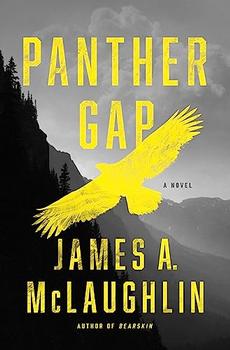Summary | Excerpt | Reading Guide | Reviews | Beyond the book | Read-Alikes | Genres & Themes | Author Bio

Award-winning author Willy Vlautin explores the impact of trickle-down greed and opportunism of gentrification on ordinary lives in this scorching novel that captures the plight of a young woman pushed to the edge as she fights to secure a stable future for herself and her family.
Barely thirty, Lynette is exhausted. Saddled with bad credit and juggling multiple jobs, some illegally, she's been diligently working to buy the house she lives in with her mother and developmentally disabled brother Kenny. Portland's housing prices have nearly quadrupled in fifteen years, and the owner is giving them a good deal. Lynette knows it's their last best chance to own their own home—and obtain the security they've never had. While she has enough for the down payment, she needs her mother to cover the rest of the asking price. But a week before they're set to sign the loan papers, her mother gets cold feet and reneges on her promise, pushing Lynette to her limits to find the money they need.
Set over two days and two nights, The Night Always Comes follows Lynette's frantic search—an odyssey of hope and anguish that will bring her face to face with greedy rich men and ambitious hustlers, those benefiting and those left behind by a city in the throes of a transformative boom. As her desperation builds and her pleas for help go unanswered, Lynette makes a dangerous choice that sets her on a precarious, frenzied spiral. In trying to save her family's future, she is plunged into the darkness of her past, and forced to confront the reality of her life.
A heart wrenching portrait of a woman hungry for security and a home in a rapidly changing city, The Night Always Comes raises the difficult questions we are often too afraid to ask ourselves: What is the price of gentrification, and how far are we really prepared to go to achieve the American Dream? Is the American dream even attainable for those living at the edges? Or for too many of us, is it only a hollow promise?
While it's a relatively slight novel, Vlautin skillfully develops the two most prominent characters — Lynette and her mother. Their relationship is incredibly complicated due to their difficult past, and both prove themselves capable of being cruel and kind in equal measure. In the guise of a highly readable page-turner, Vlautin has penned an ode to the resilience of those being left behind by gentrifying communities — embracing their stories, flaws and all, and calling for better support systems to be put in place before they slip through the cracks for good...continued
Full Review
 (515 words)
(515 words)
(Reviewed by Callum McLaughlin).
 In Willy Vlautin's novel, The Night Always Comes, a family in Portland, Oregan find themselves struggling to afford the cost of living in their neighborhood because of gentrification.
In Willy Vlautin's novel, The Night Always Comes, a family in Portland, Oregan find themselves struggling to afford the cost of living in their neighborhood because of gentrification.
Gentrification is the process in which wealthy individuals and businesses converge on a previously working-class or low-income neighborhood. (The word is derived from "gentry" and was coined in 1964 by sociologist Ruth Glass to describe an influx of middle-class people to working-class London neighborhoods.) This is different from urban renewal, which is a typically government-sponsored process of revitalizing a neighborhood to the benefit of those already living there while also attracting new residents. In either case, the influx of new money serves as a...

If you liked The Night Always Comes, try these:

by James A. McLaughlin
Published 2024
The thrilling follow-up to the Edgar Award–winning Bearskin, about two siblings on the verge of inheriting millions but who discover dark secrets in their family's past.

by Laird Hunt
Published 2022
"It was Indiana, it was the dirt she had bloomed up out of, it was who she was, what she felt, how she thought, what she knew."